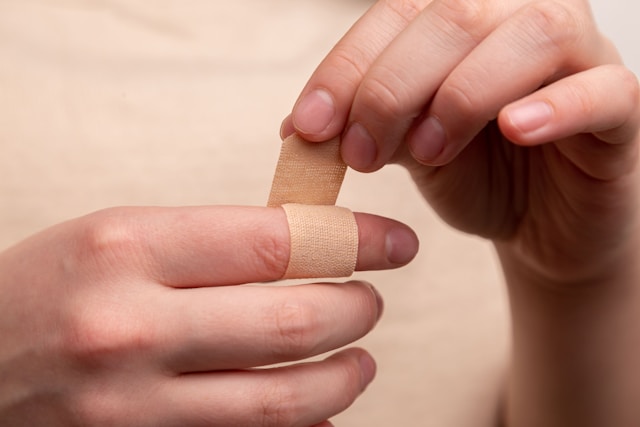After experiencing an accident injury, the confusing emotions that often follow can make it difficult to know the appropriate steps to take. Whether the incident occurs at home, on the road, or in a public place, understanding how to navigate the aftermath is crucial for ensuring health, safety, and legal protection.
The following blog post will provide clear and actionable advice on what to do after an accident injury, from administering first aid to taking necessary legal steps. By being informed and prepared, you can effectively manage the situation and protect your interests during a challenging time.

Consult Legal Help
When navigating the aftermath of an accident injury, seeking legal assistance is a vital step to ensure your rights are protected. If you’ve been involved in a truck accident, consulting with a Bellevue truck accident lawyer can provide you with the necessary guidance to understand your legal options and potential compensation claims in your area. These professionals possess the expertise to evaluate your case, gather essential evidence, and negotiate with insurance companies on your behalf. The sooner you engage a legal expert, the better your chances of securing a favorable outcome.
Ensure Safety
Immediately following an accident, make sure that everyone involved is safe and sound. If you are in a vehicle, check for injuries and assess the situation before exiting the car. Move to a safe location away from traffic or potential hazards if it’s safe to do so. If there are others injured, call emergency services promptly.
If you know first aid, begin administering it to anyone who needs it. If not, wait for medical professionals to arrive and follow their instructions. Remember that your safety and the safety of others should always be the top priority.
Document the Scene
Now, it’s time to document the scene of the accident thoroughly. Use your smartphone or a camera to take clear photographs of the surroundings, vehicles involved, and any visible injuries. Capture details such as the positions of the vehicles, road conditions, traffic signs, and any skid marks or debris on the road as these pieces of evidence can be crucial for your case later.
Note the time, date, and weather conditions, as well as the contact information of any witnesses. This documentation will help strengthen your account of the incident and provide valuable information for any legal matters or insurance claims that may arise. For car accidents, make sure to exchange insurance and contact information with the other driver.
Gather Information
In addition to documenting the scene, gather all necessary information related to the accident — this includes obtaining a copy of the police report and any medical records or bills associated with your injuries. Keep track of all expenses incurred as a result of the accident, such as transportation costs, medical treatments, and missed work.
Gather information about the at-fault party and their insurance company, and be cautious not to admit guilt or make any statements that could jeopardize your case. No matter how minor or significant the accident may seem, have all relevant information and evidence in case of any future legal action.
Report the Incident
Once you have gathered all pertinent information, report the incident to the appropriate authorities. This usually involves notifying the local police if they are not already on the scene, especially for vehicular accidents. Provide them with all the documented details and cooperate fully during the investigation. Filing a police report creates an official record of the incident, which can be invaluable for insurance claims and legal proceedings.
Additionally, inform your insurance company about the accident as soon as possible. Provide them with the necessary documentation and details regarding the accident, including any police report number. Be honest and thorough in your description, as misrepresentation could lead to complications with your claim. Never forget to keep copies of all correspondence for your personal records.
Seek Medical Attention
Even if you believe your injuries are minor, seeking medical attention after an accident is a necessity. Some injuries may not be immediately apparent and could worsen over time if left untreated. Visit a healthcare professional to receive a thorough evaluation and document any injuries sustained during the incident.
Be transparent with your doctor about all symptoms you experience, and follow their advice regarding treatment plans. Prompt medical attention will be sure to provide proper care for your injuries and create a record of medical treatment that can be used as evidence in any legal matter.
Keep Records
Throughout the aftermath of an accident injury, you need to keep detailed records of all documentation, expenses, and communication. Having organized and complete records will prove beneficial for insurance claims and legal proceedings.
Keep copies of medical records, bills, police reports, correspondence with insurance companies or legal professionals, and any other relevant documents in a secure location. These records serve as evidence of the impact that the accident has had on your life and can assist in determining fair compensation for damages.
Focus on Recovery
Most importantly, prioritize your physical and mental recovery after an accident. Seek support from loved ones, join a support group, or engage in activities that bring you comfort. Follow your doctor’s instructions for treatment plans and take the necessary time to heal fully. Trying to rush back into daily activities can prolong your healing process and potentially cause further harm.
Beyond physical recovery, seek professional help if you experience any emotional distress following the accident. Don’t feel ashamed or embarrassed to reach out for support as it is a natural response to traumatic events.
Understand Your Rights
In most cases, you have the right to seek compensation for medical expenses, lost wages, and pain and suffering. Familiarize yourself with local laws regarding personal injury claims, as these can vary by state. It’s also important to know the statute of limitations, which sets a deadline for filing a claim.
Consulting with a legal professional can help clarify your rights and ensure you follow the correct procedures. Being informed empowers you to make decisions that best support your recovery and financial well-being during this challenging time.

In the aftermath of an accident injury, taking the right steps can significantly impact your recovery and the potential for compensation. By remaining informed, organized, and proactive, you can effectively manage the situation and safeguard your interests, ultimately aiding in your journey toward recovery and resolution. You don’t have to face this process alone—seek support from professionals and loved ones to help you through this difficult time.












